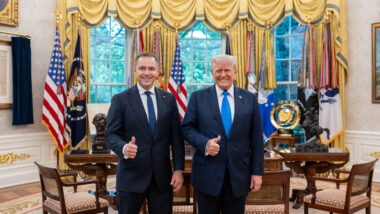Letzte Nacht fand in New York das zweite „PdF Symposium on WikiLeaks and Internet Freedom“ statt. Birgitta Jonsdottir, Gabriella Coleman, Clay Shirky, John Hockenberry und Floyd Abrams diskutierten dort über die Folgen von Wikileaks, Anonymous, etc. Davon gibt es ein Video:
The first, from Icelandic MP Birgitta Jonsdottir, will cover her involvement with WikiLeaks (which ended last fall), her work on the Icelandic Modern Media Initiative (which seeks to make the country into a kind of anti-censorship haven, in the same way that the Cayman Islands are a tax haven), and her current battle with the U.S. Justice Department over her private Twitter records. Then we’ll hear from NYU Professor Gabriella Coleman, who will share her expertise on Anonymous, the amorphous neo-collective of online activists who jumped into action in support of WikiLeaks in December, downing several major corporate websites, and more recently took action against the government of Tunisia when the Ben-Ali regime tried to block local access to social media sites. After their presentations, we’ll turn to comments from Clay Shirky, who will talk about the globalization of journalism (which he wrote about recently here). Finally, veteran journalist John Hockenberry and longtime First Amendment lawyer Floyd Abrams will round out the panel. They’re batting clean-up in order to help put things in perspective. After which, we’ll turn to the audience, and let the conversation flow where it wants to go.




passend dazu: Das Berliner Gazette DOSSIER „DIE WELT NACH CABLEGATE“ versammelt Stimmen von Politikwissenschaftlern, Aktivisten und Medientheoretikern. Sie fragen: Was für Folgen hat die Veröffentlichung von 251.287 internen Berichte und Lagebeurteilungen der US-Botschaften für JOURNALISMUS, INTERNET und ÖFFENTLICHKEIT.
http://berlinergazette.de/dossier-medien-wikileaks-cablegate